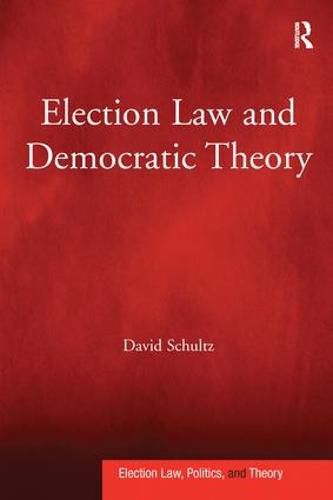Readings Newsletter
Become a Readings Member to make your shopping experience even easier.
Sign in or sign up for free!
You’re not far away from qualifying for FREE standard shipping within Australia
You’ve qualified for FREE standard shipping within Australia
The cart is loading…






While numerous books and articles examine various aspects either of democratic theory or of specific topics in election law, there is no comprehensive book that provides a detailed and scholarly discussion of the political and democratic theory underpinnings of election law. Election Law and Democratic Theory fills this important gap, as author David Schultz offers a scholarly analysis of the political principles and democratic values underlying election law and the regulation of political campaigns and participants in the United States. The book provides the first full-length examination of the political theories that form the basis for many of the current debates in election law that structure both Supreme Court and scholarly considerations of topics ranging from campaign finance reform, voting rights, reapportionment, and ballot access to the rights of political parties, the media, and other players in the system. It challenges much of the current debate in election law and argues for more discussion and development of a democratic political theory to support and guide election law jurisprudence.
$9.00 standard shipping within Australia
FREE standard shipping within Australia for orders over $100.00
Express & International shipping calculated at checkout
Stock availability can be subject to change without notice. We recommend calling the shop or contacting our online team to check availability of low stock items. Please see our Shopping Online page for more details.
While numerous books and articles examine various aspects either of democratic theory or of specific topics in election law, there is no comprehensive book that provides a detailed and scholarly discussion of the political and democratic theory underpinnings of election law. Election Law and Democratic Theory fills this important gap, as author David Schultz offers a scholarly analysis of the political principles and democratic values underlying election law and the regulation of political campaigns and participants in the United States. The book provides the first full-length examination of the political theories that form the basis for many of the current debates in election law that structure both Supreme Court and scholarly considerations of topics ranging from campaign finance reform, voting rights, reapportionment, and ballot access to the rights of political parties, the media, and other players in the system. It challenges much of the current debate in election law and argues for more discussion and development of a democratic political theory to support and guide election law jurisprudence.